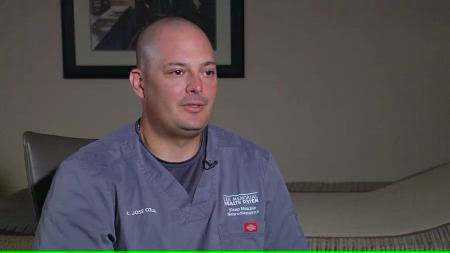Does Tryptophan in Turkey Make You Feel Sleepy ? - Guest Post by Dr. J. Colon
Posted by Blue Block Glasses Team on November 25, 2015 . 0 Comments

As Thanksgiving approaches, every year I’m asked about tryptophan and sleep. It seems to make sense to people that turkey induces sleep because it has tryptophan and on Thanksgiving people are sleepy. Not so fast! People are sleepy on Thanksgiving not because of turkey alone. It’s because a person may have 5 servings of turkey, 4 side dishes, 3 slices of pie, 2 glasses of wine (maybe reverse the order), and 1 additional serving of turkey as they stand around and pick at what's left of the carved turkey.
If turkey was the magic link for sleep it would be illegal to eat a turkey sandwich while driving, and there wouldn’t be a thriving pharmaceutical industry for hypnotic medications. Yet, there are reasons why that Thanksgiving meal can induce sleepiness and different reasons why tryptophan is helpful for sleep.
The Football-Watching Coma
Why does one feel sleepy while watching football on Thanksgiving? It’s not because my Bucs are playing! Answer is in calories, calories, calories. A Cleveland Clinic article once showed that in 1970, the average American consumed about 2,169 calories a day, and in modern times Americans are consuming 2,674 calories daily. This is just to give you a point of reference of average daily calorie content. Thanksgiving calorie count is supersized! According to the Calorie Control Council, the average American may consume more than 4,500 calories from snacking and eating a traditional holiday dinner with turkey and all the trimmings. Fowl Foul!
Ghrelin is a hormone that gives one a sensation of hunger, and it also equally causes alertness. When your stomach is empty it secretes this hormone, and ghrelin makes your gut growl. As you eat your stomach distends and it stops secreting ghrelin. Then what? Blood sugar fluctuations activate your adipocytes, our fat cells. Fat cells secrete leptin which gives one a feeling of satiety, makes you feel full. High levels of leptin are associated with sleepiness. This is how heavy meals are sleep inducing. And leptin is secreted in proportion to the amount of fat cells one has.
I’m in no way suggesting to skip the Thanksgiving meal! You may however want to be mindful about how much you indulge. If children are around, are you teaching them that Thanksgiving is about giving thanks or about a day of binge eating and gluttony?
What’s Up With Tryptophan?
Tryptophan has for long-time been known to have a role in sleep. Is it myth? No. Tryptophan and 5-Hydroxytryptophan (commonly seen in health food stores as 5-HTP) are naturally occurring and are needed for biosynthesis of the neurotransmitters serotonin and melatonin. Higher levels of brain serotonin lead to better mood and better sleep.
Besides turkey, tryptophan is also found in other poultry, meat, cheese, yogurt, fish, and eggs. The problem is that most meats and dairy cows are no longer grass fed, much fish is farm raised not wild-caught, and most chickens are not free-ranged and allowed to dine on grass. The composition of the foods we eat are not what they were generations ago.
What Foods Can Help For Better Sleep?
Just as foods can influence moods, they can influence sleep. Consider taking in healthy fats such as coconut oil, organic and pasture raised meats, and avocado to name a few sources to help provide your body with the necessary building blocks to manufacture sleep hormones.
Magnesium deficiency can cause problems with mood and sleep. Magnesium can be found in many foods, and commonly it’s associated with leafy greens. Interestingly, my friend and fellow sleep-geek Val made me aware that in the juicing community there is a mix called the “Insomnia Buster” consisting of celery, spinach, parsley, lemon slice, green apples, and ginger. That’s full of leafy greens high in magnesium. And the ginger and green apples are loaded with antioxidants for removal of toxins that can negatively affect sleep.
Holidays and a New You!
The choice of foods to improve with sleep and health in general should have an individualized approach. Approaching the holidays, people commonly begin thinking of a New Year’s resolution to eat right. Follow Paradise Sleep for up to date tips on Sleep and Wellness!
Have a Happy Thanksgiving!
Jose Colon, M.D., MPH, specializes in sleep disorders and is the author of The Sleep Diet, A Novel Approach to Insomnia, the children's sleep book The Magic Ice Cream Palace, and of Sometimes I Dream, A Book for Infant Sleep. Dr. Jose Colon is the founder of Paradise Sleep, an organization dedicated to education in sleep health. Dr. Colon is dual board-certified in sleep medicine and neurology with special qualifications in child neurology. His is an award winning author from the Florida Authors and Publishers Association in Education.

Post Comment.